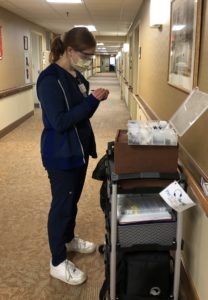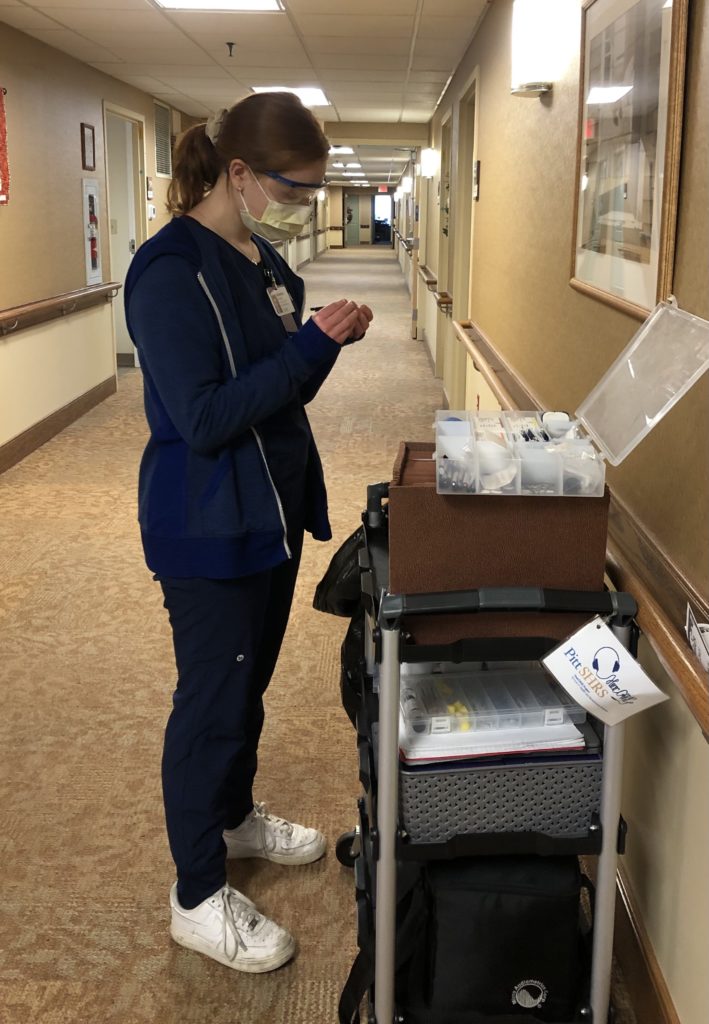Did you know that the University of Pittsburgh Center for Audiology has a program to address the problem of untreated hearing loss negatively impacting healthcare interactions in inpatient, outpatient, home health, and senior living environments? Called Interventional Audiology, it happens outside the audiology clinic under three models, and is sorely needed.
According to Catherine Palmer, PhD, Director, Audiology, UPMC Integrated Health System, among the negative consequences to undetected and untreated hearing loss are excess medical spending due to adverse events, hospitalization, and readmission to the hospital due to misunderstood communication. Hearing loss also correlates with poorer adherence to treatment recommendations. Seniors with untreated hearing loss are less satisfied with their healthcare experience. And over 60 percent of older adults have hearing loss, yet only about 18 percent use personal amplification. This results in the majority being faced with inaccurate communication during healthcare visits.

One model for identifying and treating hearing loss during healthcare interactions is embedding audiology clinics within other settings, like a geriatric outpatient clinic. An example is HearCARE (Hearing Communication Assistance for Resident Engagement). Since 2015, audiology services are provided once a month in the 33 UPMC Senior Living Communities. Several locations now also employ a Communication Facilitator, someone who supports communication throughout the community by providing supportive services like managing hearing aids or supporting personal phone and television use.
The second model includes audiology assistants as part of the interprofessional teams in the UPMC outpatient Trauma, Survivorship, and Perioperative clinics. In these clinics, the audiology assistant is the first person in the room to screen hearing and provide an amplifier if needed to support communication throughout the day. The newest endeavor is the Perioperative clinic, which is for individuals coming for advice so they can be as healthy as possible going into their surgeries.
“Needless to say, it is important that they easily hear this advice and can ask questions,” said Dr. Catherine Palmer, “These individuals also need to be able to hear on the day of surgery.”
Anyone identified as needing an amplifier in the Perioperative clinic is given one in pre-op. It stays with them through post-op. Dr. Palmer said this is very calming for them. “One can imagine how unsettling it would be to have healthcare providers giving instructions as you go into surgery if you couldn’t hear accurately,” she added.
The third model is called IHEAR (Interprofessional Help Encouraging Auditory Rehabilitation). This program trains and supports other professionals in hearing screening and/or non-custom amplification provision. An example is IHEAR’s work since 2018 with 167 home health rehabilitation specialists who provide amplifiers during home health interactions.
Dr. Palmer pointed out one interesting aspect of this program: Because this work is done in the home, these healthcare professionals have multiple opportunities to recognize untreated hearing loss (e.g. not hearing the doorbell, TV volume very loud, etc.).
“There certainly is room for other models, but we feel strongly that the involvement of audiology supports appropriate screening protocols and recommendations,” Dr. Palmer said.
